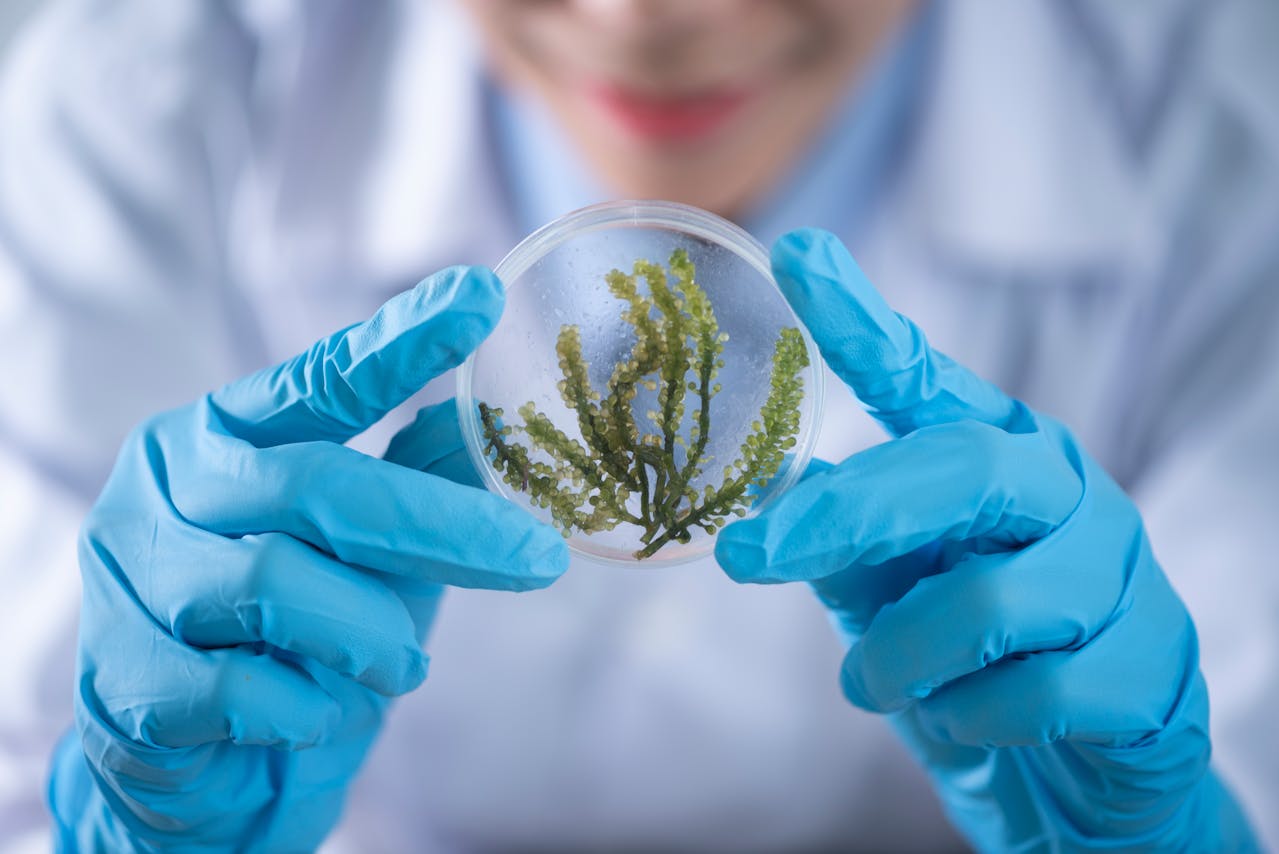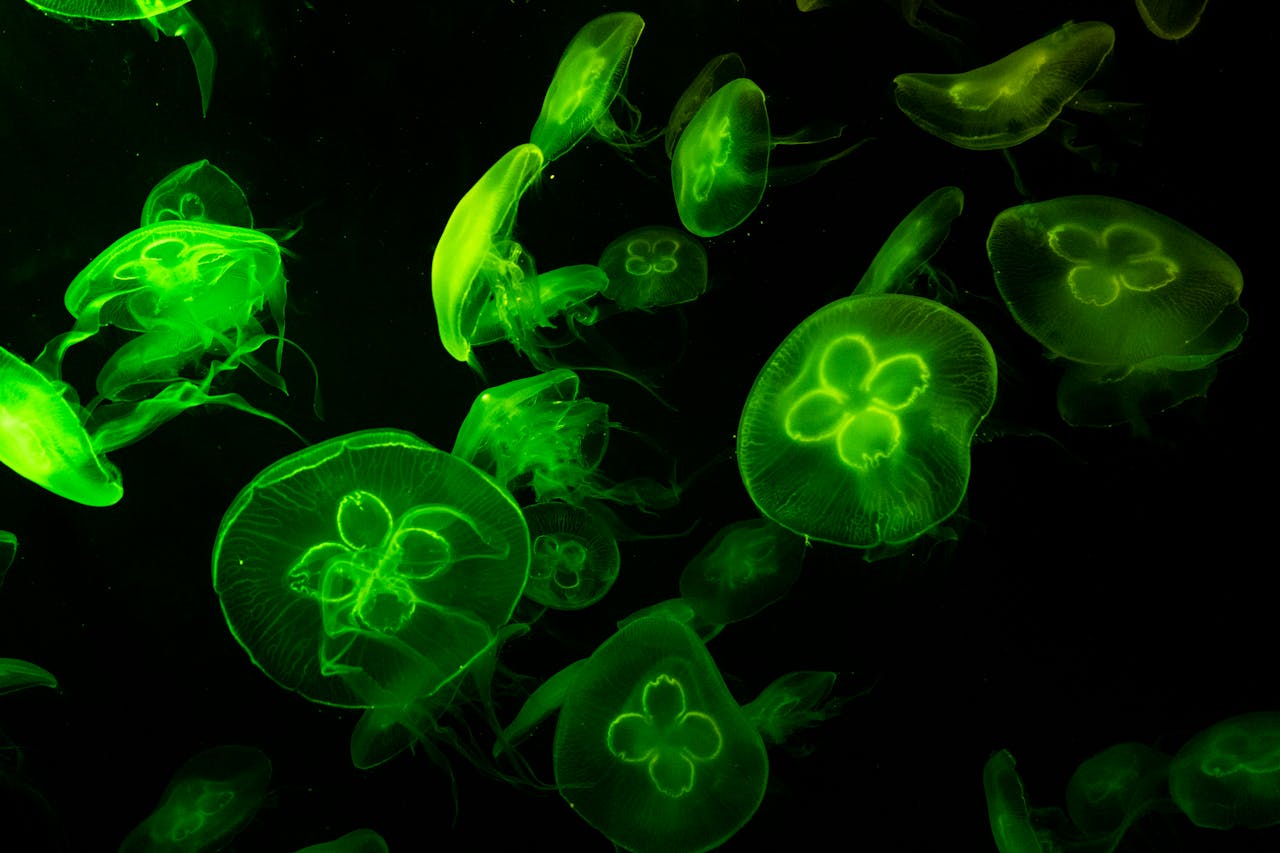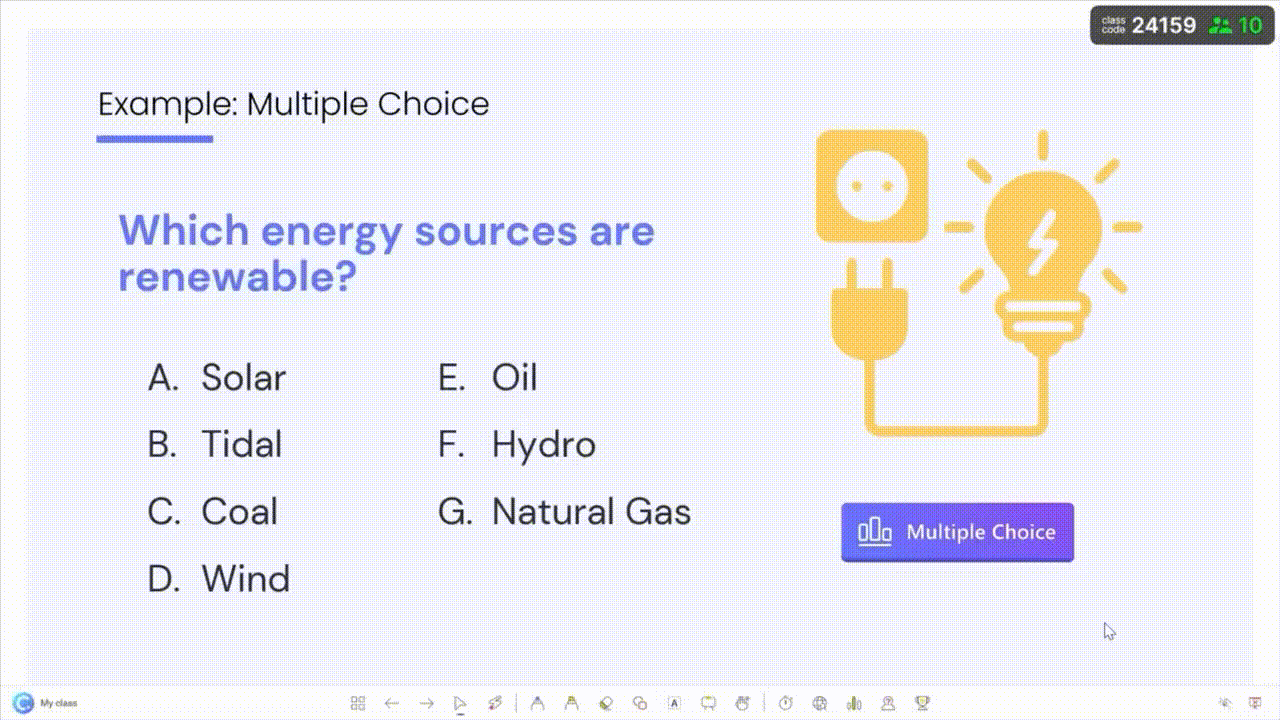275 Complete Science Trivia Questions from Atoms to Zoology!
Tired of the usual friend gatherings or classroom activities and craving something a bit less ordinary? How about hosting a science trivia showdown with your fellow science nerds and geeks? Imagine a night where you get to flaunt your knowledge of black holes while munching on snacks. Science trivia is not only a blast, but it’s also a sneaky way to impress your friends with some seriously cool scientific facts!
If you are a science enthusiast, and you love trivia, you are at the right place! With these 275 science trivia questions for all levels and interests, you can test your knowledge on everything from the secrets of the universe to the chemistry of molecules. Whether you’re a lab coat-wearing genius or someone who just likes to watch nature documentaries, these questions will keep you on your toes and might even make you the most popular person in your social circle. So, grab your thinking caps, rally your friends, and get ready for a trivia game session that’s out of this world!
Science Trivia Questions Based on Science Categories
General Science

- Q: What gas do plants absorb from the atmosphere?
A: Carbon dioxide - Q: What is the chemical symbol for water?
A: H₂O - Q: What is the most abundant element in the universe?
A: Hydrogen - Q: What force keeps us grounded on Earth?
A: Gravity - Q: What organ in the human body is primarily responsible for pumping blood?
A: Heart - Q: What is the largest planet in our solar system?
A: Jupiter - Q: What is the hardest natural substance on Earth?
A: Diamond - Q: What element is essential for the production of red blood cells?
A: Iron - Q: What process do plants use to make their food?
A: Photosynthesis - Q: What is the boiling point of water at sea level in Celsius?
A: 100°C - Q: Which vitamin is produced when a person is exposed to sunlight?
A: Vitamin D - Q: What type of energy is stored in a stretched rubber band?
A: Potential energy - Q: What is the study of life called?
A: Biology - Q: What is the basic unit of life?
A: Cell
Looking for more general common sense questions? Check out these 161 tricky common sense questions!
Physics

- Q: What is the speed of light in a vacuum?
A: Approximately 299,792,458 meters per second - Q: Who formulated the three laws of motion?
A: Sir Isaac Newton - Q: What is the unit of electrical resistance?
A: Ohm - Q: What phenomenon explains the bending of light when it passes through different mediums?
A: Refraction - Q: What is the first law of thermodynamics?
A: Energy cannot be created or destroyed, only transferred or changed in form. - Q: What particle carries a positive charge?
A: Proton - Q: What is the term for materials that do not conduct electricity?
A: Insulators - Q: What is the formula for calculating force?
A: Force = Mass × Acceleration (F = ma) - Q: What is the SI unit of power?
A: Watt - Q: What is the phenomenon where two waves superimpose to form a resultant wave?
A: Interference - Q: What is the term for the resistance of any physical object to a change in its state of motion or rest?
A: Inertia - Q: Who is known for the theory of relativity?
A: Albert Einstein - Q: What is the study of motion without considering its causes?
A: Kinematics - Q: What is the effect where a wave changes direction because of an obstacle?
A: Diffraction - Q: What is the process by which unstable atomic nuclei lose energy by emitting radiation?
A: Radioactive decay
Chemistry

- Q: What is the atomic number of carbon?
A: 6 - Q: What is the pH level of pure water?
A: 7 - Q: What gas is produced when acids react with metals?
A: Hydrogen - Q: What is the main component of table salt?
A: Sodium chloride (NaCl) - Q: What type of bond forms between two nonmetals?
A: Covalent bond - Q: What element is known as the “King of Chemicals”?
A: Sulfuric acid (H₂SO₄) - Q: What is the chemical formula for glucose?
A: C₆H₁₂O₆ - Q: What element has the highest melting point?
A: Tungsten - Q: What process separates mixtures based on differences in boiling points?
A: Distillation - Q: What is the name of the compound with the chemical formula NaHCO₃?
A: Sodium bicarbonate (baking soda) - Q: What type of chemical reaction absorbs energy?
A: Endothermic reaction - Q: Who is credited with the creation of the periodic table?
A: Dmitri Mendeleev - Q: What is the term for a substance that speeds up a chemical reaction without being consumed?
A: Catalyst - Q: What is the molecular formula for methane?
A: CH₄ - Q: What acid is found in vinegar?
A: Acetic acid (CH₃COOH)
Biology

- Q: What is the powerhouse of the cell?
A: Mitochondria - Q: What is the process by which cells divide?
A: Mitosis - Q: What molecule carries genetic information?
A: DNA - Q: What is the basic structural unit of the nervous system?
A: Neuron - Q: What blood type is known as the universal donor?
A: O-negative - Q: What process do cells use to break down sugar to produce energy?
A: Cellular respiration - Q: What is the function of ribosomes in a cell?
A: Protein synthesis - Q: What type of blood vessel carries blood away from the heart?
A: Artery - Q: What organelle is responsible for photosynthesis in plant cells?
A: Chloroplast - Q: What is the term for a group of similar cells that perform a specific function?
A: Tissue - Q: What is the largest organ in the human body?
A: Skin - Q: What type of macromolecule are enzymes?
A: Proteins - Q: What is the name of the pigment responsible for the green color of plants?
A: Chlorophyll - Q: What is the name of the process by which plants lose water vapor?
A: Transpiration - Q: What is the liquid component of blood called?
A: Plasma
Space

- Q: What planet is known as the Red Planet?
A: Mars - Q: What is the largest moon of Saturn?
A: Titan - Q: What is the name of the first man-made satellite to orbit the Earth?
A: Sputnik 1 - Q: Which planet has the most moons?
A: Jupiter - Q: What is the name of the galaxy we live in?
A: The Milky Way - Q: What phenomenon occurs when the Moon passes between the Earth and the Sun?
A: Solar eclipse - Q: What is the term for a star’s explosive death?
A: Supernova - Q: What planet is closest to the Sun?
A: Mercury - Q: What is the name of NASA’s most famous space telescope?
A: Hubble Space Telescope - Q: What is the term for the boundary around a black hole beyond which nothing can escape?
A: Event horizon - Q: What was the first spacecraft to land humans on the Moon?
A: Apollo 11 - Q: What is the term for a comet’s bright glowing tail?
A: Coma - Q: What is the name of the Mars rover that landed in 2021?
A: Perseverance - Q: Which planet is known for its prominent ring system?
A: Saturn - Q: What is the largest type of star in the universe?
A: Red supergiant
Environmental Science
- Q: What is the main cause of global warming?
A: Greenhouse gas emissions - Q: What is the most common greenhouse gas?
A: Carbon dioxide (CO₂) - Q: What is the process by which water vapor becomes liquid water?
A: Condensation - Q: What type of ecosystem is characterized by water-saturated soils?
A: Wetland - Q: What is the name for the variety of life in an ecosystem?
A: Biodiversity - Q: What is the term for the maximum population size that an environment can sustain?
A: Carrying capacity - Q: What is the process by which plants absorb carbon dioxide during photosynthesis and release oxygen?
A: Carbon cycle - Q: What is the layer of the atmosphere that contains the ozone layer?
A: Stratosphere - Q: What is the term for species that are at risk of extinction?
A: Endangered species - Q: What is the most abundant gas in Earth’s atmosphere?
A: Nitrogen - Q: What is the process by which fertile land becomes desert?
A: Desertification - Q: What is the term for the amount of energy captured by plants and used for growth?
A: Primary productivity - Q: What is the main cause of coral bleaching?
A: Rising sea temperatures - Q: What is the term for the process of planting trees to restore forests?
A: Reforestation - Q: What international agreement aims to reduce greenhouse gas emissions?
A: Paris Agreement
Try this Earth Day trivia with your students and friends to test your knowledge on our Mother Earth!
Science Fiction

- Q: What is the name of the ship in the “Star Trek” series?
A: USS Enterprise - Q: What year was the first “Star Wars” movie released?
A: 1977 - Q: Who wrote the novel “1984”?
A: George Orwell - Q: What is the name of the AI system in “2001: A Space Odyssey”?
A: HAL 9000 - Q: In “The Matrix,” what is the term for the simulated reality?
A: The Matrix - Q: What is the name of the planet inhabited by the Fremen in “Dune”?
A: Arrakis - Q: Who is the author of “The War of the Worlds”?
A: H.G. Wells - Q: What is the name of the spaceship in “Alien”?
A: Nostromo - Q: What is the name of the supercomputer in Isaac Asimov’s “Foundation” series?
A: The Prime Radiant - Q: What is the title of the Philip K. Dick novel that inspired the movie “Blade Runner”?
A: “Do Androids Dream of Electric Sheep?” - Q: What is the term for a genetically engineered human in “Gattaca”?
A: Valid - Q: Who wrote “The Hitchhiker’s Guide to the Galaxy”?
A: Douglas Adams - Q: What is the name of the main character in “Ender’s Game”?
A: Ender Wiggin - Q: What is the title of the novel that introduced the concept of “Big Brother”?
A: “1984” - Q: In “Jurassic Park,” what type of animal DNA was used to fill in the gaps in the dinosaur DNA?
A: Frog DNA
Anthropology

- Q: What is the term for the study of ancient human societies through their material remains?
A: Archaeology - Q: Who is known as the “Father of American Anthropology”?
A: Franz Boas - Q: What is the term for a society that moves from place to place with no permanent home?
A: Nomadic society - Q: What is the term for the transmission of culture from one generation to the next?
A: Enculturation - Q: What is the term for the belief in multiple gods?
A: Polytheism - Q: What is the term for marriage between individuals of different social groups?
A: Exogamy - Q: What ancient civilization built the pyramids of Giza?
A: The Egyptians - Q: What is the name of the prehistoric period when humans used stone tools?
A: The Stone Age - Q: What is the name of the ancient writing system used in Mesopotamia?
A: Cuneiform - Q: What is the name of the ancient civilization that developed along the Indus River?
A: The Indus Valley Civilization - Q: What is the term for a society’s way of life, including its customs, traditions, and beliefs?
A: Culture - Q: Who is known for the theory of cultural evolution?
A: Lewis Henry Morgan - Q: What is the name of the anthropological theory that suggests cultures evolve through similar stages?
A: Unilinear cultural evolution - Q: What is the term for the practice of living with a community to understand its culture?
A: Participant observation
Genetics

- Q: What is the molecule that carries genetic information in all living organisms?
A: DNA - Q: Who is known as the father of genetics?
A: Gregor Mendel - Q: What is the term for a sequence of DNA that codes for a specific protein?
A: Gene - Q: What is the term for an organism’s observable characteristics?
A: Phenotype - Q: What is the name of the process by which DNA is copied during cell division?
A: DNA replication - Q: What are the two types of nucleic acids found in cells?
A: DNA and RNA - Q: What is the term for the alteration of a DNA sequence?
A: Mutation - Q: What is the term for the set of all genes in a population?
A: Gene pool - Q: What is the name of the structure that organizes DNA in the nucleus?
A: Chromosome - Q: What is the term for the genetic makeup of an organism?
A: Genotype - Q: What process increases genetic diversity in sexually reproducing organisms?
A: Meiosis - Q: What is the term for a gene that is expressed only when two copies are present?
A: Recessive gene - Q: What is the term for the crossing of different species or varieties?
A: Hybridization - Q: What is the name of the project that mapped the entire human genome?
A: The Human Genome Project - Q: What is the term for a change in allele frequency in a population due to random sampling?
A: Genetic drift
Zoology

- Q: What is the largest mammal in the world?
A: Blue whale - Q: What is the fastest land animal?
A: Cheetah - Q: What is the only marsupial found in North America?
A: Opossum - Q: What is the term for animals that are active during the night?
A: Nocturnal - Q: What is the term for an animal that eats both plants and animals?
A: Omnivore - Q: What is the name of the largest living species of lizard?
A: Komodo dragon - Q: What is the term for animals that lay eggs?
A: Oviparous - Q: What is the name of the process by which insects change form during development?
A: Metamorphosis - Q: What is the term for a group of lions?
A: Pride - Q: What is the term for the seasonal movement of animals from one region to another?
A: Migration - Q: What is the name of the bird that is known for its impressive courtship dance?
A: Peacock - Q: What is the term for animals with a backbone?
A: Vertebrates - Q: What is the term for the study of birds?
A: Ornithology - Q: What is the name of the largest land carnivore?
A: Polar bear
Cosmology

- Q: What is the study of the origin, evolution, and eventual fate of the universe?
A: Cosmology - Q: What is the term for the point at which the universe began?
A: The Big Bang - Q: What is the name of the theory that explains the accelerated expansion of the universe?
A: Dark energy - Q: What is the term for the remnants of radiation from the Big Bang?
A: Cosmic microwave background - Q: What is the term for the hypothetical boundary of the observable universe?
A: The cosmological horizon - Q: What is the name of the structure that holds galaxies together?
A: Dark matter - Q: What is the term for a hypothetical massive explosion at the end of the universe?
A: Big Crunch - Q: What is the name of the concept that suggests the universe has no center?
A: Cosmological principle - Q: What is the term for a universe in which the density of matter is exactly equal to the critical density?
A: Flat universe - Q: What is the term for the hypothetical point in time when the universe will cease to expand and begin to contract?
A: Big Crunch - Q: What is the name of the theory that suggests multiple universes exist?
A: Multiverse theory - Q: What is the term for a universe that continues to expand forever?
A: Open universe - Q: What is the name of the supermassive black hole at the center of our galaxy?
A: Sagittarius A* - Q: What is the term for the universe’s rate of expansion?
A: Hubble’s constant - Q: What is the name of the concept that the universe is expanding uniformly in all directions?
A: Isotropy
Engineering

- Q: What is the name of the material used to reinforce concrete?
A: Rebar - Q: What is the term for the study of fluid in motion?
A: Fluid dynamics - Q: What is the name of the principle that explains how airplanes achieve lift?
A: Bernoulli’s principle - Q: What is the term for a system that automatically controls itself without human intervention?
A: Autonomous system - Q: What is the term for the ratio of the output force to the input force in a simple machine?
A: Mechanical advantage - Q: What is the term for a structure’s ability to withstand an earthquake?
A: Seismic resilience - Q: What is the name of the process by which metal is shaped by hammering or pressing?
A: Forging - Q: What is the term for the engineering discipline focused on the design and operation of chemical processes?
A: Chemical engineering - Q: What is the name of the first artificial satellite launched by humans?
A: Sputnik 1
Science Trivia Questions for School!
Science Trivia Questions for Kids

- Q: What planet is known as the Red Planet?
A: Mars - Q: What gas do plants need for photosynthesis?
A: Carbon dioxide - Q: What is the smallest particle of an element called?
A: Atom - Q: What is the primary source of energy for life on Earth?
A: The Sun - Q: What is the process by which caterpillars become butterflies?
A: Metamorphosis - Q: How many legs does a spider have?
A: Eight - Q: What is the name of the closest star to Earth?
A: The Sun - Q: What is the name of the force that pulls objects toward the center of the Earth?
A: Gravity - Q: What is the largest mammal on Earth?
A: Blue whale - Q: What do bees collect from flowers to make honey?
A: Nectar - Q: What part of the plant conducts photosynthesis?
A: Leaf - Q: What is the term for animals that eat plants?
A: Herbivores - Q: What type of animal is a dolphin?
A: Mammal - Q: What is the solid state of water called?
A: Ice
Try these 600+ This or That questions for Kids!
Science Trivia Questions for High School

- Q: What is the powerhouse of the cell?
A: Mitochondria - Q: What is the formula for calculating speed?
A: Speed = Distance ÷ Time - Q: What is the chemical formula for water?
A: H₂O - Q: Who developed the theory of evolution by natural selection?
A: Charles Darwin - Q: What is the name of the law that states energy cannot be created or destroyed?
A: The First Law of Thermodynamics - Q: What is the unit of electrical resistance?
A: Ohm - Q: What is the atomic number of oxygen?
A: 8 - Q: What process do cells use to produce energy without oxygen?
A: Anaerobic respiration - Q: What is the most abundant gas in Earth’s atmosphere?
A: Nitrogen - Q: What is the name of the galaxy that contains our Solar System?
A: The Milky Way - Q: What is the process by which plants lose water through their leaves?
A: Transpiration - Q: What is the symbol for the element gold?
A: Au - Q: What is the SI unit of force?
A: Newton - Q: What is the study of heredity called?
A: Genetics - Q: What is the pH of a neutral solution?
A: 7
Practice quiz bowl with your students with these 213 Quiz Bowl questions!
Science Trivia Questions for Teachers

- Q: What is the term for the amount of heat required to raise the temperature of one gram of water by one degree Celsius?
A: Calorie - Q: What is the name of the effect that causes the Earth’s rotation to influence wind and ocean currents?
A: Coriolis effect - Q: What is the name of the boundary that separates the Earth’s troposphere from the stratosphere?
A: Tropopause - Q: What is the name of the equation used to calculate the energy of a photon?
A: E = hν (where E is energy, h is Planck’s constant, and ν is frequency) - Q: What type of symmetry is observed in an organism where parts are arranged around a central axis?
A: Radial Symmetry - Q: What is the name of the hypothetical boundary beyond which nothing, not even light, can escape from a black hole?
A: Event Horizon - Q: What is the principle that states the rate of a chemical reaction is directly proportional to the concentration of the reactants?
A: Rate Law - Q: What is the name of the model that describes the formation of Earth’s continents and oceans over geological time?
A: Plate Tectonics Theory - Q: What is the term for the mathematical description of the probability distribution of a particle’s position and momentum in quantum mechanics?
A: Wave Function - Q: What is the name of the process where DNA is transcribed into mRNA, which is then translated into a protein?
A: Central Dogma of Molecular Biology - Q: What is the name of the fundamental physical constant that describes the rate of expansion of the universe?
A: Hubble Constant - Q: What is the term for the theoretical temperature at which a system’s entropy reaches its minimum value?
A: Absolute Zero - Q: What is the name of the principle that describes the conservation of angular momentum in a system with no external torques?
A: Conservation of Angular Momentum
Science Trivia Questions based on Difficulty Levels
Easy Science Trivia Questions for Science Beginners
- Q: What planet is known for its rings?
A: Saturn - Q: What is the process by which plants make their own food?
A: Photosynthesis - Q: What part of the plant anchors it in the soil?
A: Root - Q: What is the name of the liquid part of blood?
A: Plasma - Q: What do we call the young of a frog?
A: Tadpole - Q: What is the boiling point of water in Celsius?
A: 100°C - Q: What do you call a scientist who studies stars and planets?
A: Astronomer - Q: What is the largest organ in the human body?
A: Skin - Q: What type of animal is a penguin?
A: Bird - Q: What is the center of an atom called?
A: Nucleus - Q: What type of energy is stored in a battery?
A: Chemical energy - Q: What is the name of the force that pulls objects toward Earth?
A: Gravity - Q: What do we call a change from a liquid to a solid?
A: Freezing
Average Difficulty Science Trivia Questions for those Warming Up

- Q: What is the name of the pigment that gives plants their green color?
A: Chlorophyll - Q: What is the term for the movement of tectonic plates beneath the Earth’s surface?
A: Plate tectonics - Q: What is the main gas found in the air we breathe?
A: Nitrogen - Q: What is the term for a group of stars that form a recognizable pattern in the sky?
A: Constellation - Q: What is the chemical symbol for sodium?
A: Na - Q: What is the name of the process by which plants lose water through their leaves?
A: Transpiration - Q: What type of bond involves the sharing of electrons between atoms?
A: Covalent bond - Q: What is the name of the boundary that separates different atmospheric layers?
A: Tropopause - Q: What is the term for an organism that makes its own food using sunlight?
A: Producer - Q: What is the name of the process where a liquid turns into a gas?
A: Evaporation - Q: What is the scientific study of fungi called?
A: Mycology - Q: What is the name of the device used to measure temperature?
A: Thermometer - Q: What is the name of the enzyme that breaks down lactose in the body?
A: Lactase - Q: What is the term for a substance that speeds up a chemical reaction without being consumed?
A: Catalyst
Hard Science Trivia Questions for Adults

- Q: What is the main component of natural gas?
A: Methane (CH₄) - Q: What is the name of the bond formed when two atoms share electrons?
A: Covalent bond - Q: What is the name of the enzyme that breaks down starch into sugars?
A: Amylase - Q: What is the term for a substance that donates protons in a chemical reaction?
A: Acid - Q: What is the unit of measure for electrical current?
A: Ampere - Q: What is the term for the study of the physical and psychological effects of shift work and irregular work hours on employees?
A: Chronobiology - Q: What scientific approach is used to analyze and improve workplace workflows and processes by identifying bottlenecks and inefficiencies?
A: Process Improvement - Q: What scientific principle states that increasing the size of a system or process does not always result in a proportional increase in efficiency?
A: Law of Diminishing Returns - Q: What scientific concept involves optimizing a process by considering the entire system and its interactions rather than individual components?
A: Systems Thinking
Hardest Science Trivia Questions for the True Pros

- Q: What is the scientific term for a substance that absorbs and emits light of specific wavelengths?
A: Spectrophotometer - Q: What is the name of the equation that describes the relationship between a system’s pressure, volume, and temperature?
A: Ideal Gas Law - Q: What is the term for the constant speed of an object in free fall, when the force of gravity is balanced by the air resistance?
A: Terminal velocity - Q: What is the term for the fundamental limit on the precision of simultaneous measurements of certain pairs of physical properties, such as position and momentum?
A: Heisenberg Uncertainty Principle - Q: What is the term for the energy required to remove an electron from an atom or molecule in its gaseous state, also known as ionization energy?
A: Ionization Energy - Q: What is the name of the hypothetical boundary beyond which a black hole’s gravitational pull is so strong that not even light can escape, and it represents the event horizon in general relativity?
A: Schwarzschild Radius - Q: What is the name of the concept in quantum mechanics that describes the situation where a particle can exist in multiple states or locations simultaneously until it is observed?
A: Quantum Superposition - Q: What is the name of the theoretical framework that unifies all fundamental forces of nature into a single model, often associated with string theory and supergravity?
A: Theory of Everything - Q: What is the name of the model that explains the behavior of fundamental particles and their interactions through symmetry principles and gauge fields, extending beyond the Standard Model?
A: Grand Unified Theory (GUT) - Q: What is the name of the fundamental constant of nature that describes the coupling strength of the strong force, which governs the interactions of quarks and gluons within protons and neutrons?
A: Strong Coupling Constant
Bonus: Weird Science Trivia Questions

- Q: What is the name of the phenomenon where objects appear to be lighter underwater than they are in air?
A: Apparent weight loss - Q: What is the term for the phenomenon where cats can land on their feet after a fall?
A: Righting reflex - Q: What is the name of the condition where people believe they are dead or do not exist?
A: Cotard’s syndrome - Q: What is the name of the theory that proposes that our universe is just a computer simulation?
A: Simulation hypothesis - Q: What type of fish can change its sex during its lifetime?
A: Clownfish - Q: What is the term for the study of extremely small organisms that live in the ocean’s abyssal zone?
A: Abyssal biology - Q: What is the term for the condition where a person can smell colors or see sounds?
A: Synesthesia - Q: What is the name of the phenomenon where you can see the same number of colors in the dark as you can in the light?
A: Color constancy - Q: What is the name of the condition where people experience physical pain without a clear cause?
A: Phantom pain - Q: What is the name of the gene-editing technology that can be used to modify DNA?
A: CRISPR-Cas9 - Q: What is the term for the phenomenon where an object moves faster than the speed of sound?
A: Supersonic - Q: What is the name of the bacteria that can survive extreme radiation and harsh environments?
A: Deinococcus radiodurans - Q: What is the term for a substance that can exist in more than one physical state at the same temperature?
A: Triple point - Q: What is the name of the phenomenon where an object can float in the air due to a balance of forces?
A: Levitation
Want more? Check out these 350 funny trivia questions!
Play Science Trivia Right Inside PowerPoint!
ClassPoint is the leading choice for audience engagement among teachers and educators globally. Its intuitive interface and powerful features enable you to effortlessly incorporate interactive elements like quizzes, polls, and multimedia into your slides. This makes your Science trivia not just informative but also engaging. Whether you’re kicking off a classroom activity or hosting a trivia event, ClassPoint’s interactivity and versatility guarantee that your Science trivia will be both enjoyable and educational.
Here’s how you can use ClassPoint to play a gamified Science trivia in a few easy steps:
Step 1: Set the Stage
Begin by downloading this exclusive Science trivia PowerPoint template and opening it in PowerPoint.👇
Step 2: Integrate ClassPoint
Go to the ClassPoint website to download and install the tool for free. ClassPoint will let you run interactive quizzes in PowerPoint, enhancing your presentation with engaging features that take your trivia questions to the next level.
data-title="Try ClassPoint for Free"
data-description="800,000+ educators and professionals use ClassPoint to boost audience engagement right inside PowerPoint."
Step 3: Set Up Interactive Quizzes

Once ClassPoint is installed, go to the slide with your first question. Use the ClassPoint toolbar in your PowerPoint ribbon to select one of the 8 quiz types – we recommend Multiple Choice Questions and Short Answer for the best Science trivia experience! This will turn your static questions into an interactive experience. You can also customize the difficulty, scoring, and timing during this setup phase. (Skip this step if you do not wish to add new quiz questions or customize the quiz questions.)
Step 4: Launch the Science Trivia

Share the unique code displayed in the top right of your presentation with participants to join the trivia at classpoint.app. They can enter the code manually or scan the QR code provided to participate. Start the trivia by clicking on the quiz button in slideshow mode!
Step 5: Monitor Responses and Award Points in Real-Time

As participants submit their answers, use ClassPoint’s real-time monitoring to award points, track scores, and view overall progress. This live feedback adds excitement to the trivia session.
Step 6: Display Leaderboard Updates

Enhance the competitive atmosphere by showing leaderboard updates after each question. This keeps participants engaged and motivated. Use the random name picker function if you want to ensure everyone has a fair chance to answer questions.
Step 7: Conclude with a Winner

Finish the trivia night by announcing the final leaderboard and celebrating the top performer. A well-executed conclusion will leave everyone with a positive experience and eager for the next trivia quiz!
Concluding Thoughts
With this collection of 275 Science trivia questions, from fundamental concepts to mind-boggling facts, you have everything you need to turn your crowd into science whizzes or at least make them think you’re the coolest friend or teacher ever. Use these questions to stir up some friendly competition, create unforgettable classroom moments, or just have a laugh as you discover that, yes, science can be as amusing as a lab rat on a treadmill. Get ready to ignite curiosity and create some laughter!
Comments
Post a Comment